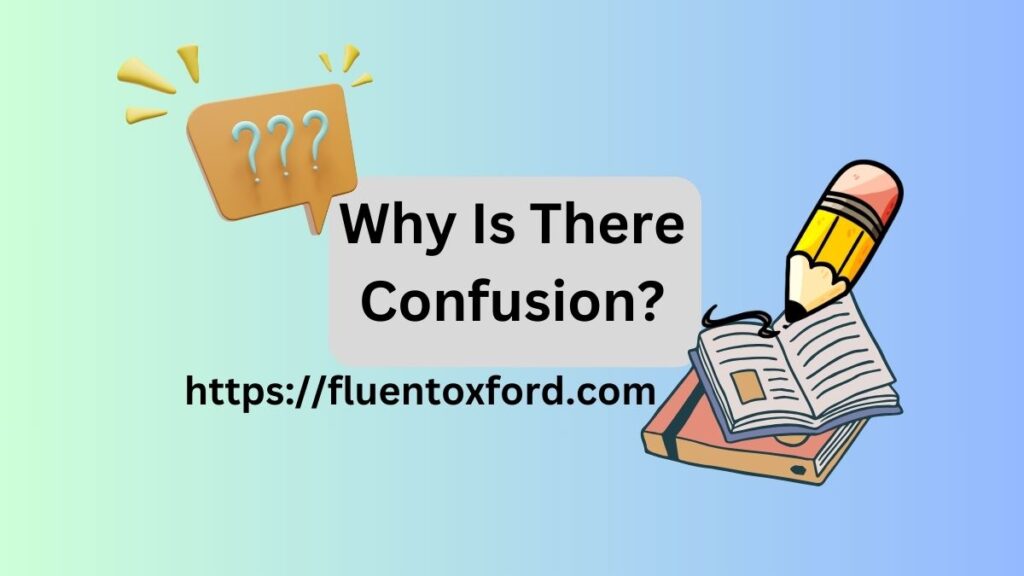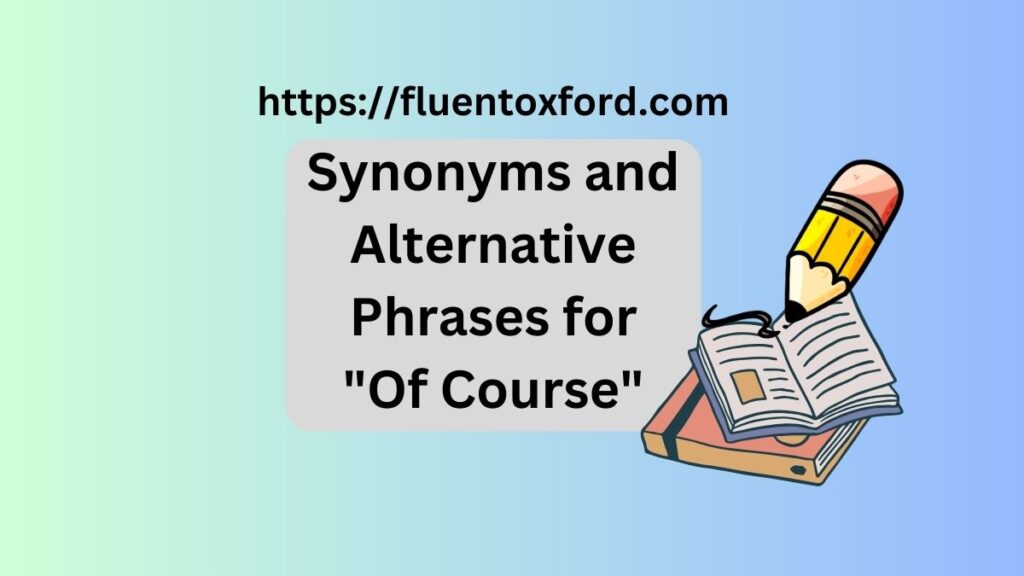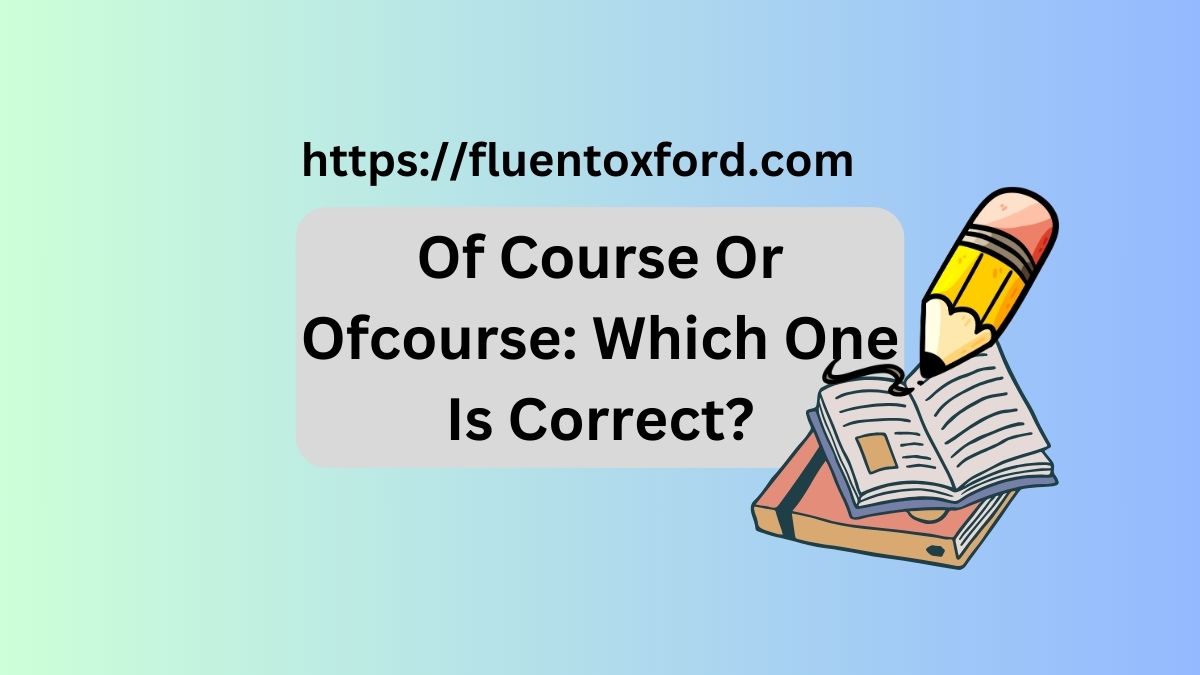The phrase “Of Course” is the correct form, while “Ofcourse” is an incorrect spelling. “Of Course Or Ofcourse: Which One Is Correct?” is a common concern for English learners and writers. “Of course” is a two-word phrase used to express certainty, agreement, or something obvious. The mistake happens because, when spoken, the words blend together, making “ofcourse” seem like a single word. However, in proper English grammar, “of course” should always be written as two separate words. Understanding this difference is essential for clear and professional communication.
Language mistakes can change the meaning of a sentence and affect credibility. Imagine writing an important email or article with a spelling error that makes it look unprofessional. “Of Course Or Ofcourse: Which One Is Correct?” is a simple but crucial distinction to master. Knowing the right form ensures your writing looks polished and grammatically correct. Even small errors can impact how others perceive your language skills.
Many people mistakenly write “ofcourse” because of how the phrase sounds in speech. However, in writing, separating the words is necessary for proper grammar. “Of Course Or Ofcourse: Which One Is Correct?” is a common confusion, but the answer is clear—“of course” is the only correct form. Learning this small but important rule will help you improve your English fluency and confidence.
Why Is There Confusion?

The confusion between “of course” and “ofcourse” happens because of how the phrase sounds when spoken. When people say it quickly, the two words blend together, making it seem like a single word. This leads many to believe that “ofcourse” is a correct spelling, but it is not. Another reason for the mistake is that some non-native English speakers assume it follows the pattern of other compound words.
However, in proper English grammar, “of course” should always be written as two separate words. Understanding this helps avoid errors in writing and improves overall language accuracy.
The confusion between “of course” and “ofcourse” comes from several factors:
- Spoken vs. Written English: When spoken quickly, “of course” can sound like a single word, leading people to write it incorrectly.
- Compound Word Misconception: English often forms compound words like “nonstop” and “notebook.” However, “of course” is not one of them.
- Social Media Posts & Informal Writing: On platforms like Twitter and Instagram, users often shorten words or create non-standard spellings for convenience.
- Autocorrect & Predictive Text: Some devices may not always flag “ofcourse” as incorrect, reinforcing the mistake.
Key Takeaway:
👉 “Ofcourse” is not a word in standard English. “Of course” is always the correct spelling.
What Do “Of Course” and “Ofcourse” Mean?
“Of course” is a common English phrase used to express certainty, agreement, or something that is obvious. It can be used to confirm something politely, such as “Of course, I will help you,” or to emphasize that something is expected, like “Of course, the sun rises in the east.” On the other hand, “ofcourse” is not a correct word in English.
It is a common spelling mistake caused by the way the phrase sounds when spoken. To maintain proper grammar and clarity in writing, always use the correct form—“of course”—as two separate words.
To understand why “ofcourse” is incorrect, let’s examine what “of course” means and how it’s used in everyday conversation and formal writing.
Definition of “Of Course”
“Of course” is a common English expression used to:
- Express certainty – “Of course, I remember your birthday!”
- Acknowledge something obvious – “You need a license to drive a car, of course.”
- Grant polite permission – “Can I borrow your pen?” – “Of course!”
- Show agreement – “Do you like coffee?” – “Of course!”
Examples of “Of Course” in Sentences:
| Context | Sentence Example |
| Certainty | “Of course, the sun will rise tomorrow.” |
| Obviousness | “The Earth is round, of course.” |
| Polite Permission | “May I take a seat?” – “Of course!” |
| Agreement | “Did you enjoy the movie?” – “Of course!” |
Is “Ofcourse” Ever Correct?
No. “Ofcourse” is always incorrect in standard English. It is not recognized as a real word in dictionaries and is considered a spelling error.It is a common spelling mistake caused by how the phrase sounds when spoken quickly. The correct form is always “of course”, written as two separate words.
Using “ofcourse” in writing can make sentences look unprofessional or incorrect. To ensure proper grammar and clear communication, always use “of course”, the only grammatically correct form.
👉 Always write “of course” as two separate words.
Synonyms and Alternative Phrases for “Of Course”

If you want to mix up your writing, here are some common expressions that can replace “of course”:
Formal Synonyms:
- Certainly
- Naturally
- Without a doubt
- By all means
- Indisputably
Informal Synonyms:
- Yeah, sure
- No problem
- You bet
- For sure
Example:
- Instead of: “Of course, I’ll help you.”
- Try: “Certainly, I’ll help you.”
- Absolutely, you can count on me for support.
- Naturally, he was excited about the promotion.
- Without a doubt, she is the best candidate for the job.
- By all means, feel free to ask any questions.
When and How to Use “Of Course” Correctly
When to Use “Of Course”
The phrase “of course” is used in English to express certainty, agreement, or something that is obvious. It is a versatile phrase that can be used in both formal and informal contexts. Here are some common situations where you can use “of course” correctly:
- To Confirm or Assure Someone
- When you want to reassure someone or confirm something, “of course” is a great choice.
- Example: “Of course, I will help you with your project.”
- When you want to reassure someone or confirm something, “of course” is a great choice.
- To Show Agreement
- It is often used when agreeing with someone in a conversation.
- Example: “Of course, that makes perfect sense!”
- It is often used when agreeing with someone in a conversation.
- To State Something Obvious
- You can use “of course” when mentioning facts that are widely known or expected.
- Example: “Of course, the Earth orbits the Sun.”
- You can use “of course” when mentioning facts that are widely known or expected.
- To Be Polite and Encouraging
- It can also be used to sound friendly and welcoming.
- Example: “Of course, you can call me anytime!”
- It can also be used to sound friendly and welcoming.
How to Use “Of Course” Correctly
To use “of course” correctly, always write it as two separate words. Writing it as “ofcourse” is incorrect.
- ✅ Correct: “Of course, I understand what you mean.”
- ❌ Incorrect: “Ofcourse, I understand what you mean.”
Be careful with your tone when using “of course” because, in some cases, it can sound dismissive or sarcastic. For example, saying “Of course, you didn’t know that!” might come across as rude.
Using “of course” correctly will help improve your writing and communication, making your language clearer and more professional.
Origins and Etymology of “Of Course”
The phrase “of course” dates back to the 16th century and comes from the idea of something happening as a natural course of events. The phrase “of course” originates from Middle English and has been used for centuries to express certainty, agreement, or something expected. The word “course” comes from the Latin “cursus,” meaning a path or direction. In English, “of course” originally referred to something happening naturally, as in “following the normal course of events.”
Over time, its meaning evolved to emphasize assurance or obviousness. Today, it is widely used in both casual and formal conversations. Understanding its etymology helps clarify why it remains a fundamental part of English, reinforcing ideas of predictability and logical expectation in communication.
Historical Timeline of “Of Course”
| Time Period | Usage & Evolution |
| 1500s | Used in sailing to describe a ship following its expected course. |
| 1700s | Shifted to a figurative meaning, referring to something happening naturally. |
| 1800s-Present | Became a phrase used in everyday English to express certainty and agreement. |
Conclusion
Understanding the correct phrase is important for clear and proper communication. “Of Course” is the right form, while “Ofcourse” is a mistake. Many people make this error because the words sound like one, but in writing, they should always be separate. Using the right spelling helps you look professional and confident in your language skills. So, when asking, “Of Course Or Ofcourse: Which One Is Correct?”, always remember that “of course” is the proper choice.
Words matter, especially in writing. Choosing the correct form of a phrase shows attention to detail and respect for grammar. Now that you know the difference, you can avoid this common mistake. The next time you write, take a moment to check your spelling. “Of Course Or Ofcourse: Which One Is Correct?” You now know the answer—always use “of course.”
Frequently Asked Questions (FAQs)
1. Is “ofcourse” ever correct?
No, “ofcourse” is always incorrect. The correct form is “of course.”
2. Can I use “of course” in formal writing?
Yes, “of course” is acceptable in formal writing, but it’s best used in conversational or explanatory contexts.
3. What are some alternatives to “of course”?
Synonyms include “certainly,” “naturally,” “without a doubt,” and “by all means.”
4. Why do people mistakenly write “ofcourse” as one word?
It’s often due to spoken English blending the words together, making them sound like a single word.
5. Does “of course” always imply politeness?
Not always. It can be polite or sound dismissive, depending on the tone and context.

As an admin at Fluent Oxford, Maida Queen is the driving force behind our vibrant learning community. With a deep passion for English language education, she ensures that our platform remains a dynamic, engaging, and supportive space for learners worldwide.
Maida expertly manages content, assists users with their grammar and fluency queries, and fosters an interactive environment where learning feels effortless and enjoyable. Whether you need guidance, motivation, or just a friendly face in the Fluent Oxford community, Maida is always there to help you reach your English language goals.








